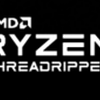As the AMD Ryzen 7000 desktop platform approaches its one-year mark, there's a renewed attention on the High-End Desktop (HEDT) sector.
Historically associated with Intel, the HEDT space now sees AMD as a significant player, particularly with the upcoming introduction of the Threadripper 7000 series. While this development faced certain postponements, it's slated to utilize the AMD SP6 socket. This socket is also expected to be in use with the imminent AMD EPYC 8004 Siena processors, rooted in the Zen 4c architecture, with a support ceiling of 64 cores.
In this frame of reference, the forthcoming Storm Peak series comprises three models, all bearing a 350W Thermal Design Power (TDP). This specific power designation positions them between low-power solutions and high-energy-consuming variants. Speculations lean towards these processors targeting workstation-oriented Pro variants initially, rather than an immediate release for general consumers. Models to note in this series are the 7945WX, 7985WX, and 7995WX. Though exact core counts remain undetermined, early insights suggest possible configurations. The 7945WX might offer 12 cores and 24 threads, the 7985WX potentially spanning 64 cores and 128 threads, and the 7995WX could potentially offer 96 cores and 192 threads.
In essence, despite delays, the forthcoming AMD Threadripper 7000 series is a calculated endeavor to address the evolving HEDT market. Emphasis on power efficiency and the inclusion of the Zen 4 architecture.
Update:
AMD's upcoming Ryzen Threadripper Pro 7995WX (Storm Peak) has been spotted in a benchmark revealing 96 cores and boost speeds of up to 5.1 GHz. This information is sourced from a Geekbench 5 submission. The Ryzen Threadripper Pro 7995WX has 96 cores and 192 threads, representing a 50% increase in core count over its predecessor, the Ryzen Threadripper Pro 5995WX (Chagall). This chip also has 60% more cores than Intel's Xeon Platinum 8490H (Sapphire Rapids) server processor.
The Threadripper Pro 7995WX is closely comparable to AMD's EPYC 9654 (Genoa) in terms of design, yet they are expected to have different features. In terms of core count, only the EPYC Bergamo, with up to 128 cores, surpasses the Ryzen Threadripper Pro 7995WX.
Cache improvements are notable in the 7995WX model; it possesses 384MB of L3 cache and 96MB of L2 cache, mirroring the EPYC 9654's design. Compared to the Ryzen Threadripper Pro 5995WX, there's a 50% increase in L3 cache and a threefold increase in L2 cache.
Specifications (Unconfirmed):
- Ryzen Threadripper 7995WX: 96 cores / 192 threads, Boost Clock up to 5.1 GHz, 384MB L3 Cache, 96MB L2 Cache, TDP 350W.
- EPYC 9654: 96 cores / 192 threads, Boost Clock up to 3.7 GHz, 384MB L3 Cache, 96MB L2 Cache, TDP ranges between 320W - 400W.
- Ryzen Threadripper Pro 5995WX: 64 cores / 128 threads, Boost Clock up to 4.5 GHz, 256MB L3 Cache, 32MB L2 Cache, TDP 280W.
- Xeon Platinum 8490H: 60 cores / 120 threads, Boost Clock up to 3.5 GHz, 112.5MB L3 Cache, 120MB L2 Cache, TDP 350W.
Further analysis of the Geekbench 5 submission indicates that the Ryzen Threadripper Pro 7995WX possibly achieved a single-core boost speed of 5,140 MHz. This is 14% higher than the Ryzen Threadripper Pro 5995WX and 38% higher than the EPYC 9564. Given the EPYC 9564's $11,805 price point, AMD's pricing strategy for the similarly-designed Ryzen Threadripper Pro 7995WX remains a topic of interest.
Caution is advised when interpreting leaked benchmarks. The Ryzen Threadripper Pro 7995WX reportedly scored 2,095 on single-core tests and 81,408 on multi-core tests. This represents a 26% single-core performance improvement over the Ryzen Threadripper Pro 5995WX. Multi-core performance improvement is estimated at around 49%.
Updated: Ryzen Threadripper 7945WX, 7985WX and 7995WX Zen 4 (4 Cores Up to 5.1 GHz)


